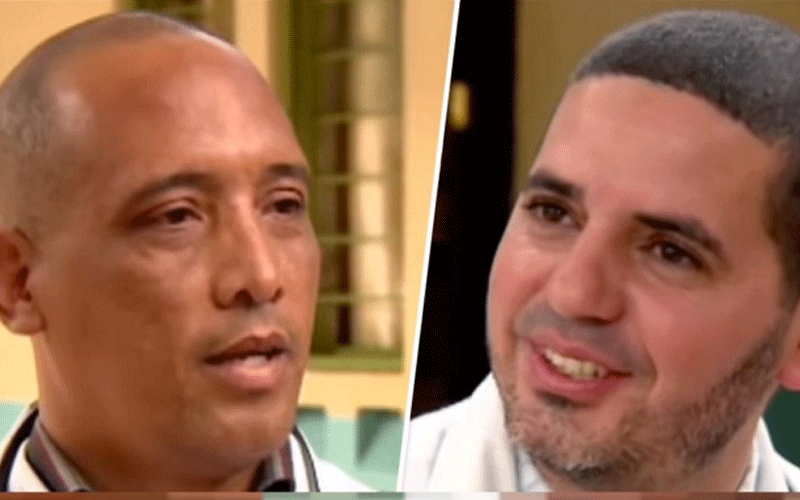Confusion reigns over news about hijacked Cuban doctors release

Confusion greeted the reports of the release of the two Cuban doctors who were kidnapped within Mandera town in April last year amid news that they had been set free by their Al Shabaab captors.
While a section of the media confirmed that they had been released, others said the two were still in detention.
But yesterday Kenya government authorities confirmed the release but did not disclose their whereabouts.
Sources, however, indicated that they had safely been brought to Nairobi and will be with detectives for some time before they are allowed to rejoin their families.
Assel Herera Correa and Landy Rodriguez were kidnapped during a daring raid that was staged a few minutes after 9am, where the attackers shot dead one of the two police officers escorting the medics to their work station.
Correa, an orthopaedic surgeon and Rodrigues, a physician, were part of a 100-member Cuban team that had come to Kenya for work under an agreement between the two countries. They had been deployed in 2018 in an exchange programme.
Armed assailants
During the ambush, the armed assailants in a saloon car and a Toyota Probox first blocked the police vehicle, alighted and opened fire, killing the AP officer on the spot.
Following the incident, police arrested the county government driver, and other police officers who were tasked with guarding the doctors.
The gunmen bundled the two health workers into their cars and sped off towards Somalia.
After the kidnapping, a multi-agency security team was formed to rescue the two by involving the local leaders with their counterparts in Somalia.
The multi-pronged approach was adopted after the security team comprising the police, reservists and the Kenya Defence Forces failed to trace the two even after it became clear that conducting any operation in Somalia was impossible.
The National Security Advisory Committee (NSAC) held several meetings last year over the incident.
Confirming the release, the Cuban Foreign Minister in a tweet said the two had been released and thanked the Somalia government for its help.
“I had a telephone conversation with the Foreign Minister of Somali Ahmed Isse Awad.
I appreciated the support and efforts of your government to guarantee the safe return of our kidnapped doctors.
We highlight the will to strengthen bilateral ties between the two governments,” he tweeted.
Somalia intelligence officials, acting at the request of the Cuban government, said the release was agreed after several months of negotiations with the militants.
A few months ago, a video of the two in Somalia was obtained by detectives and shared with the authorities.
In December last year, Kenyan authorities affirmed that the two doctors were well and were continuing with their efforts to have them released.
Terrorists have in the past organised kidnappings that mainly target foreigners.
On November 20, 2018, in Chakama, Kilifi County, an Italian NGO worker was abducted. Such kidnappings have also happened in Dadaab refugee camps.
When they, for example, kidnap doctors, they often take them to their camps to attend to their injured colleagues.
A month after the Cubans were kidnapped, there were reports that elders from Mandera County had gone to Somalia to renegotiate a Sh150 million ransom that the militants had demanded for the release of the two.
It was, however, not established if ransom was paid to secure their release. The policy in most countries is not to make substantive concessions to hostage takers.
It is believed that paying ransoms and releasing prisoners increases the risk of further hostage taking.












